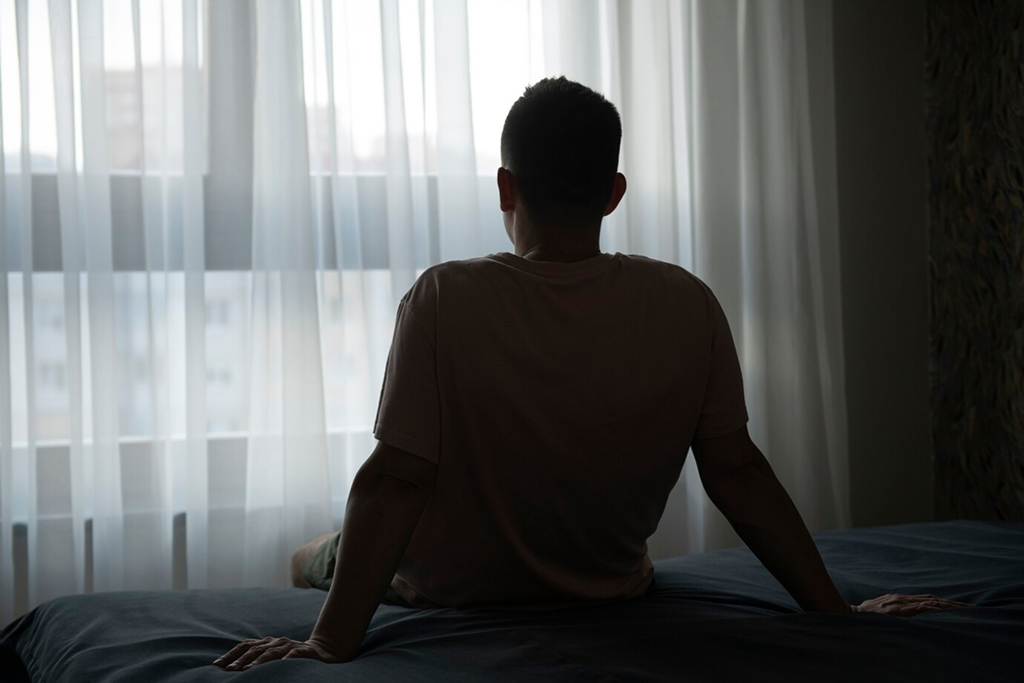Last Updated on June 13, 2025 by Bryan Dastan

Erectile dysfunction (ED) is a physical condition. Factors such as age, cardiovascular health, Blood Pressure, diabetes, hormones, or medication can cause ED or impotence in men. However, psychogenic ED is often a result of something increasingly common in today’s modern world: loneliness. We will delve into the emotional, psychological, and physiological aspects of loneliness and resultant sexual dysfunction, especially ED.
Loneliness in the Modern Age
Loneliness is not just being physically alone. It is the absence of social connection—a painful awareness of your loneliness. Social media has made people lonelier than ever. According to a Harvard study, over 36% of Americans report severe and unbearable loneliness. The numbers are strikingly higher among young adults and men.
Chronic loneliness activates stress responses in the body. It elevates cortisol (the stress hormone), reduces sleep quality, and impairs immune function. However, one of the lesser-known effects is its impact on sexual performance and erectile function.
Erectile Dysfunction: More Than a Physical Issue
You think you have Erectile Dysfunction when you experience a consistent inability to get or maintain an erection adequate for penetration. ED has many physical health-related causes, such as poor blood flow, diabetes, heart disease, certain medications, or even psychological health, such as anxiety, depression, low self-esteem, and loneliness, which can all interfere with the mental state required for arousal and performance.
Erections are not just about adequate blood flow into the male organ. They are about brain stimulation and arousal. The process begins with desire, sexual urges, emotional connection, excitement, and mental stimulation fuelling it. When loneliness creeps in, that shakes the psychological foundation, giving way to Erectile Dysfunction.
Can Erectile Dysfunction Creep in With Loneliness?
- Emotional Disconnect To Sexual Disconnect
Women want to be in the thick of things and nurture fun interactions. Matching emotional wavelengths often invokes attraction, which culminates in physical intimacy. Loneliness can cause you to move away from an emotional bond with your partner. Whether single or in a relationship, when men feel emotionally isolated, even from their partners, their sexual desire and responsiveness may wane, invoking performance anxiety and, often, ED.
- Stress and Cortisol Imbalance
Loneliness is a proven chronic stressor. It causes cortisol levels to rise, which can constrict blood vessels and hamper smooth blood flow, making it physically difficult to attain and sustain an erection. High cortisol acts as a deterrent to testosterone production, which is essential for sexual function.
- Low Self-esteem and Body Image Issues
Lonely, secluded, isolated individuals often live in a shell and suffer from an adverse and unfavorable image in society. They may withdraw from social and romantic encounters. They may feel unworthy of affection or nurture a fear of rejection. This chips away at confidence and self-esteem, one of the most potent aphrodisiacs (which causes sexual arousal), and primes the brain for sexual failure.
- Depression and Anxiety
Loneliness is both a cause and a symptom of psychological health disorders. Depression can often reduce libido, cause anxiety, especially sexual performance anxiety, and prevent arousal or cause premature loss of an erection. It is a vicious cycle. Loneliness leads to anxiety, which leads to ED, which leads an individual into an unfathomable abyss of loneliness, seclusion, and isolation.
The Vicious Feedback Loop
One of the most insidious aspects of ED caused by loneliness is the feedback loop it creates. A man experiencing ED may shy away from intimate or romantic relationships because of the fear of failure and embarrassment. This further aggravates the feeling of loneliness, which exacerbates his psychological and physiological conditions, keeping the problem alive perennially.
The Journal of Sexual Medicine study suggests that men who reported higher levels of loneliness also experienced lower sexual satisfaction and higher rates of erectile dysfunction, even in physically healthy and young men.
Dodge Loneliness: Improve ED
Yes, addressing the root causes of emotional hibernation can significantly improve sexual health.
- Build Productive Connections
Connecting with old friends, joining support groups, reviving social networks, volunteering, and engaging in community interactions instill a sense of confidence and self-esteem. Social and family interactions improve mood, reduce stress, and enhance overall well-being, which are key ingredients for a meaningful life.
- Seek Therapeutic Counseling
Cognitive-behavioral therapy (CBT) and talk therapy can transform and open up individuals of all ages and psychological states. They help men avoid negative self-talk in their heads and trauma and reinstate emotional well-being. In cases of ED, sex therapy from a licensed and qualified professional can specifically address performance-related issues in a safe, supportive environment.
- Improve Lifestyle Habits
Loneliness is a result and cause of poor health habits: drinking, smoking, a sedentary lifestyle, or sleep deprivation. Being in the thick of things like exercise, a healthy morning routine after waking up, medication, or writing journals or musings can cut off the sense of loneliness and help reverse ED. Exercise, restorative sleep, and mindful activities restore the biological functions and systems that support healthy sexual function.
- Open Up to Your Partner
If you are in a relationship, never avoid talking out. Healthy, mindful, inspirational communication is the key to a sustainable relationship and avoiding loneliness. Sharing and seeking thoughts and ideas can reinforce emotional intimacy, reduce pressure, and open the door for healing.
Parting Words
One can feel loneliness and consider it harmless, but it affects sexual life, and the effects are real, measurable, and profound. Erectile Dysfunction caused or worsened by loneliness is not about weakness; it is about being a superior biological being called a human. The need for connection, love, and emotional security is as fundamental as the sexual function. Interaction cures loneliness and improves erectile dysfunction.


